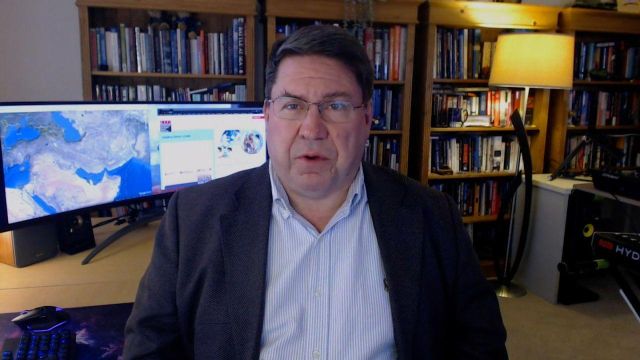By Eric Vandenbroeck and co-workers
US President Joe
Biden knew about Israel's plan to bomb Tehran on Saturday morning and even
encouraged it as a way to deter further attacks.
It was Iran’s
ballistic missile strikes on Israel on October 1 that started to raise fears of an all-out war in the Middle East. The
deepening spiral of bloodshed began on September 17 and 18 with the detonation
across Lebanon of thousands of pagers and two-way radios used by Hezbollah operatives, one
analyst deemed the unprecedented Israeli operation “the most extensive physical
supply chain attack in history.” Ongoing airstrikes in Beirut and southern
Lebanon have marked the most significant Israeli barrage in 11 months of
tit-for-tat escalation. On September 27, Israel dealt Hezbollah a
devastating blow by killing its leader Hassan Nasrallah in an airstrike on a
Beirut suburb. Despite reeling from these latest reverses and the evisceration
of its command structure, the Shiite militia continues to lob missiles at
Israel. Stunned and outraged, Iran, Hezbollah’s patron, fired around 200
ballistic missiles at Israel; at least one person was killed in the West
Bank. Iranians are now bracing for Israeli retaliation. The cycle of
violence, it appears, is far from over.
A senior White House
official announced that the president worked directly with Israeli Prime
Minister Benjamin Netanyahu 'to design a response that served to deter further
acts against Israel while reducing the risk of further escalation. The
official also claimed the White House "worked with the Israelis over
recent weeks to encourage Israel to conduct a response that was targeted and
proportional with low risk of civilian harm."
But the Israeli
military has already issued a chilling ultimatum to Iran if the country decides
to retaliate for the airstrikes.
Explosions were heard
across Tehran as the Israeli military announced they launched retaliatory
strikes in the region.
The official also
claimed the White House 'worked with the Israelis over recent weeks to
encourage Israel to conduct a response that was targeted and proportional with
low risk of civilian harm.
IDF forces said they
were conducting 'precise strikes' on military targets in Iran in response to
what it called 'the continuous attacks from the regime in Iran against Israel'.
Explosions were also
reported in Iraq and Syria.
It announced hours
later that the strikes were 'completed' and 'the mission was fulfilled.' The
Middle East has been on edge in anticipation of the Israeli retaliation
for Iran's attack on October 1, in which around 200 ballistic missiles were
fired at Israel in Iran's second direct attack on Israel in six months.
Iran may think twice
before striking back, Malcolm Davis, senior analyst at the Australia
Strategic Policy Institute, says:

Israel’s strike on
Saturday is embarrassing for Iran but Tehran may yet refrain from a forceful
retaliation, a defense expert said.
Malcolm Davis, senior
analyst at the Australia Strategic Policy Institute, said that while Israel had
kept its attack “limited” and “precise,” it was “certainly embarrassing” for
Iran.
“But the question is,
do they want to go down the path of launching a retaliation against Israel for
this particular attack and then seeing Israel say ‘Fine, bets are off,’ and
going after the Iranian nuclear facilities and going after the Iranian oil facilities,”
he said.
Israel could also
target members of Tehran’s leadership, he added.
“So I think that
Iran’s best interest here is to essentially take this hit and back down and
accept the fact that Israel delivered this attack,” he said.
For updates click hompage here